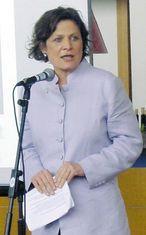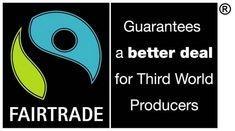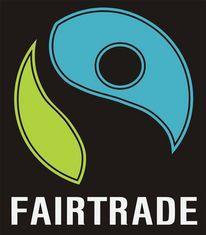


Consumer awareness of the Fairtrade mark has shot up from 57 to 70 per cent in the UK in the last 12 months, according to latest research commissioned by the Fairtrade Foundation.
The TNS CAPI OmniBus findings also show understanding of the concept behind the Mark has increased, with 64 per cent of the population linking the logo to a better deal for producers in the developing world.
“The research shows it is also influencing everyday purchases throughout the country, with one in four of the UK’s shoppers now regularly buying several products carrying the Fairtrade Mark. The trend is for more people to be buying more products more regularly,” said a Fairtrade Foundation statement.
Harriet Lamb, executive director of the Fairtrade Foundation, said: “This research shows that the balance of public opinion is tipping in favour of Fairtrade where Fairtrade is seen as an integral part of a sustainable global future. More and more UK shoppers see Fairtrade as a simple, highly effective way to enable producers in the developing world to work their way out of poverty with dignity, receiving a decent return for their great produce and hard work.
“The challenge is now set for UK business to make more Fairtrade products available. There have been significant commercial developments in recent years - which have no doubt contributed to the visibility of the Fairtrade Mark and therefore the awareness reflected in this research - but there is a long way to go as producers in the developing world line up to be able to supply the UK Fairtrade market and UK consumers show their willingness to buy Fairtrade goods as they become available across sectors.”
Estimated retail sales of Fairtrade products increased from £286 million in 2006 to £493m in 2007, a 72 per cent rise. The Foundation puts the huge leaps in sales and awareness of the Fairtrade Mark down to the vibrant grassroots social movement which underpins Fairtrade. Across the UK, there are now more than 350 Fairtrade Towns, 4,000 Fairtrade Churches, 37 Fairtrade Synagogues, 60 Fairtrade Universities and a newly launched network of Fairtrade Schools, all campaigning to support and promote Fairtrade in their local area.
“We are calling on consumers, companies and politicians to step up the fight against global poverty through trade, and continue to tip the balance in favour of farmers from developing countries. With two billion working people earning less than US$2 a day and many of these producing the goods we put in our shopping baskets every day, it is critical to increase the momentum for change through Fairtrade in 2008.”
The TNS CAPI OmniBus findings show the gap between people buying Fairtrade products regularly and occasionally has decreased since 2007 (16 per cent to 24 per cent and 15 per cent to 14 per cent respectively). The percentage of consumers who regularly or occasionally buy several Fairtrade products has gone up (18 per cent to 24 per cent and 15 per cent to 17 per cent respectively) and the number of consumers who say they never buy Fairtrade products has also decreased.
The survey also showed that recognition is highest with 35-44 year olds (76 per cent) and fastest growing with 25-34 year olds (76 per cent). More women than men recognise the logo, reflecting the main shoppers in most households.
Coffee remains the most widely known Fairtrade product, followed by significant increases in awareness of Fairtrade tea, chocolate and bananas. However, recognition of the overall range of Fairtrade products has risen across most categories in 2008. Fairtrade bananas are the best selling Fairtrade product with sales topping £150m in 2007, an increase of 130 per cent.



